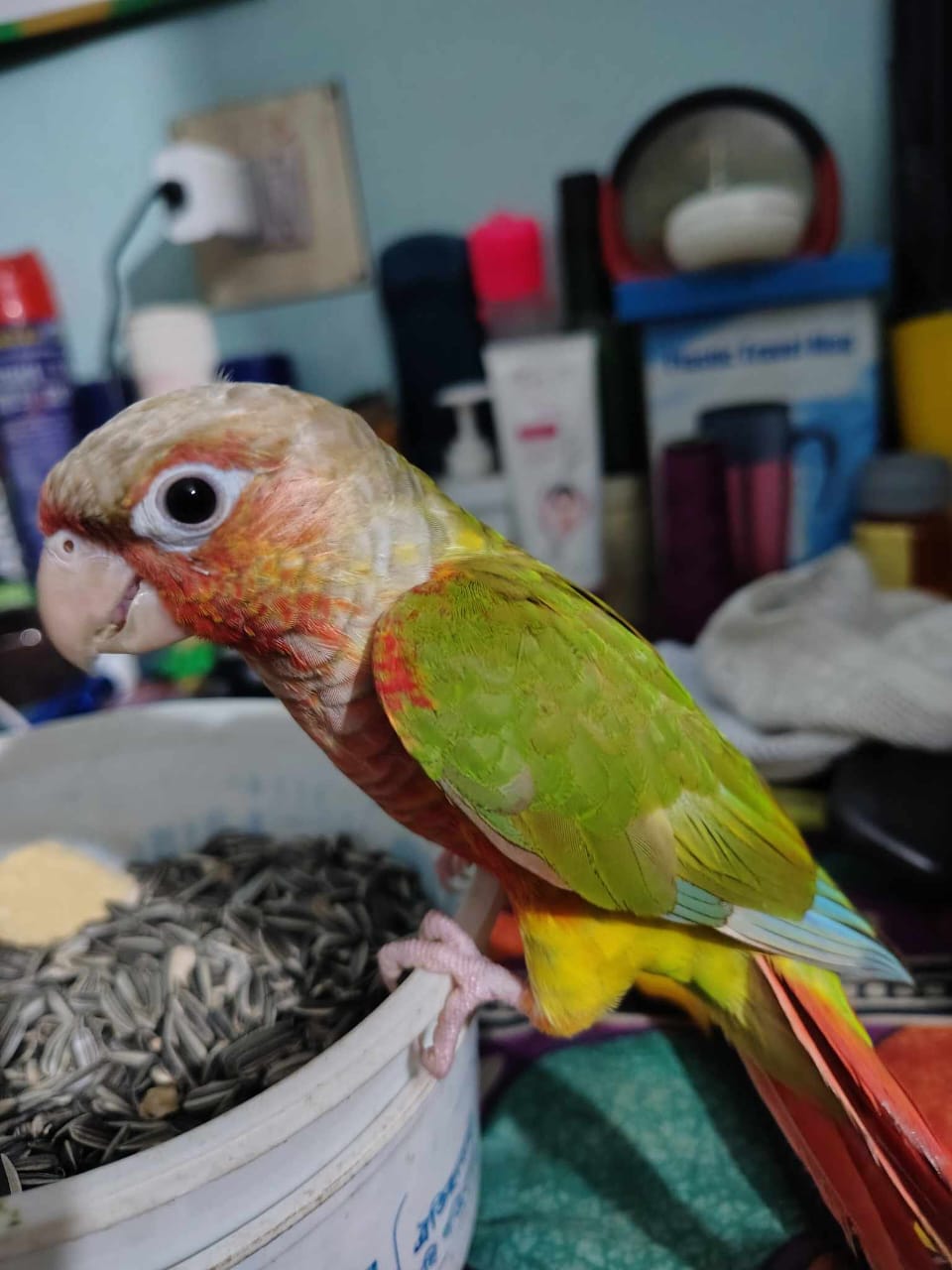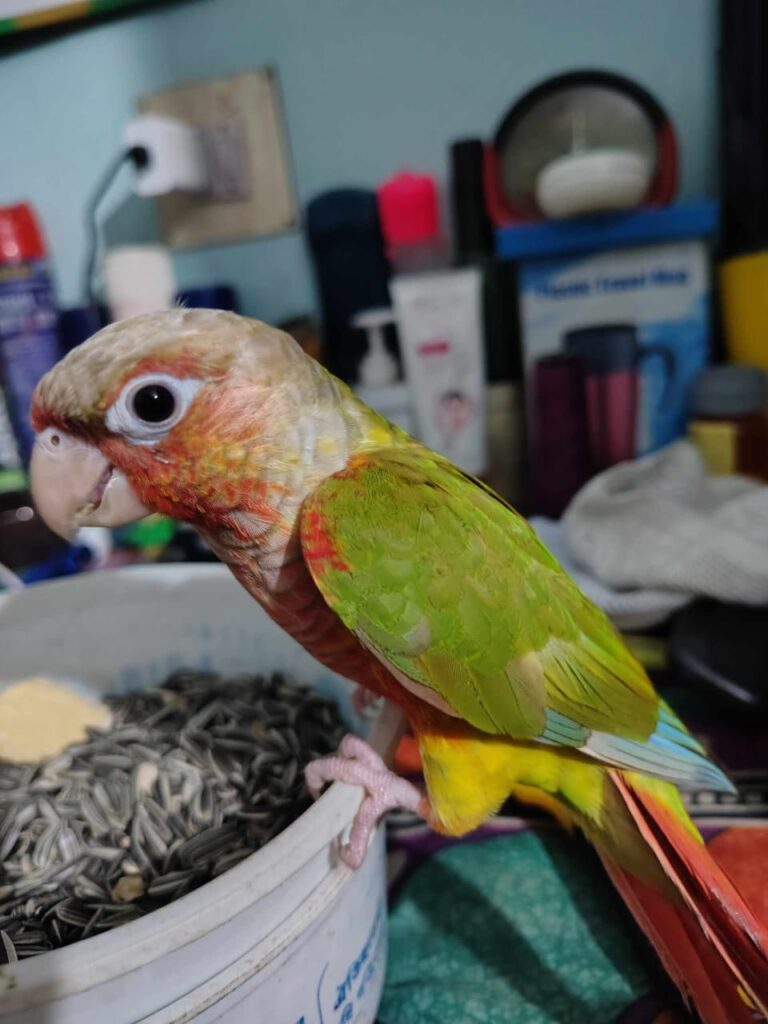Bird enthusiasts are always on the lookout for new ways to keep their feathered friends happy and healthy. One unique addition to a bird’s diet that has been gaining popularity is spicy bird food. While it might seem unusual to offer spicy food to birds, it can actually be a beneficial addition when done correctly. Birds have different taste receptors compared to humans, and some can enjoy spicy foods without the discomfort that mammals experience. This article explores the concept of spicy bird food, the types of spices that are safe, and how to incorporate them into your bird’s diet.
Understanding Birds’ Taste Buds
Birds have a significantly lower number of taste buds compared to humans. For example, humans have about 10,000 taste buds, whereas birds only have a few hundred. This difference means that birds do not experience the spicy sensation in the same way humans do. Capsaicin, the active component in chili peppers that causes the burning sensation, does not affect birds as it does mammals. This unique trait allows birds to enjoy spicy bird food without any discomfort.
Benefits of Spicy Bird Food
- Encourages Natural Foraging Behavior: Birds in the wild often encounter a variety of food sources, including spicy plants. By adding spices to their diet, you can mimic their natural feeding habits, encouraging foraging and mental stimulation.
- Antimicrobial Properties: Certain spices like cayenne pepper have natural antimicrobial properties that can benefit a bird’s health. These spices can help reduce the risk of bacterial infections, supporting a healthier immune system.
- Aids in Pest Control: Spicy bird food can act as a natural deterrent to pests such as squirrels, which are sensitive to capsaicin. Offering spicy food ensures that your bird feeder is less likely to be raided by unwanted visitors.
Rich in Antioxidants: Some spices are rich in antioxidants, which are beneficial for a bird’s overall health. Antioxidants help reduce oxidative stress and can contribute to a longer lifespan and better vitality for your pet birds.
Types of Safe Spices for Birds
While birds can tolerate a variety of spices, it’s crucial to ensure that what you’re offering is safe. Here are some spices commonly used in spicy bird food:
- Cayenne Pepper: Cayenne is one of the most popular spices used in bird food. It adds a kick without harming the bird and can be mixed into seeds or pellets. It also helps keep pests away due to its spicy nature.
- Turmeric: Known for its anti-inflammatory properties, turmeric is safe for birds and can be sprinkled lightly on their food. It also offers a vibrant color that can make the food visually appealing.
- Ginger: Ginger can be a great addition to your bird’s diet in small amounts. It aids digestion and can be a healthy spice that birds generally tolerate well.
Cinnamon: Ground cinnamon can be added sparingly to your bird’s food. It provides a warm, sweet flavor without heat, making it suitable for birds who may not prefer strong spices.
How to Introduce Spicy Bird Food Safely
Introducing spicy bird food to your pet should be done gradually. Here are some steps by which you can ensure a soft transition:
- Start with Small Amounts: Begin by adding a small pinch of spice to your bird’s regular food. Observe their reaction before gradually increasing the amount.
- Mix with Familiar Foods: Combine spices with foods your bird already enjoys. This method helps them accept the new flavors more readily without feeling overwhelmed by a sudden change.
- Monitor Your Bird: Always keep an eye on your bird’s behavior and health when introducing new foods. If your bird shows signs of distress or unusual behavior, discontinue the spicy food and consult with a veterinarian.
Avoid Over-Spicing: Even though birds can handle spice, moderation is key. Over-spicing can lead to digestive upset or aversion to food, so it’s best to use spices sparingly.
Precautions When Feeding Spicy Bird Food
- Avoid Salted and Processed Spices: Always use pure spices without added salt, sugar, or preservatives, as these can be harmful to birds.
- Consult with a Vet: Before making any major changes to your bird’s diet, it’s wise to consult with an avian veterinarian. They can provide guidance specific to your bird’s species and individual health needs.
- Not Suitable for All Birds: While many birds can tolerate spice, not all species will enjoy or benefit from it. Parrots, for instance, are more likely to appreciate spicy foods compared to smaller birds like canaries or finches.

Conclusion
Incorporating spicy bird food into your pet bird’s diet can be a delightful way to enhance their feeding experience. By using safe spices in moderation, you can offer a unique and beneficial twist to their meals. Always prioritize your bird’s safety and well-being, and enjoy watching them explore these exciting new flavors. Whether it’s for the health benefits, pest control, or simply adding variety to their diet, spicy bird food could be a worthwhile addition to your feathered friend’s routine.
Remember, the key to success with spicy bird food is moderation and careful observation. Happy feeding!

